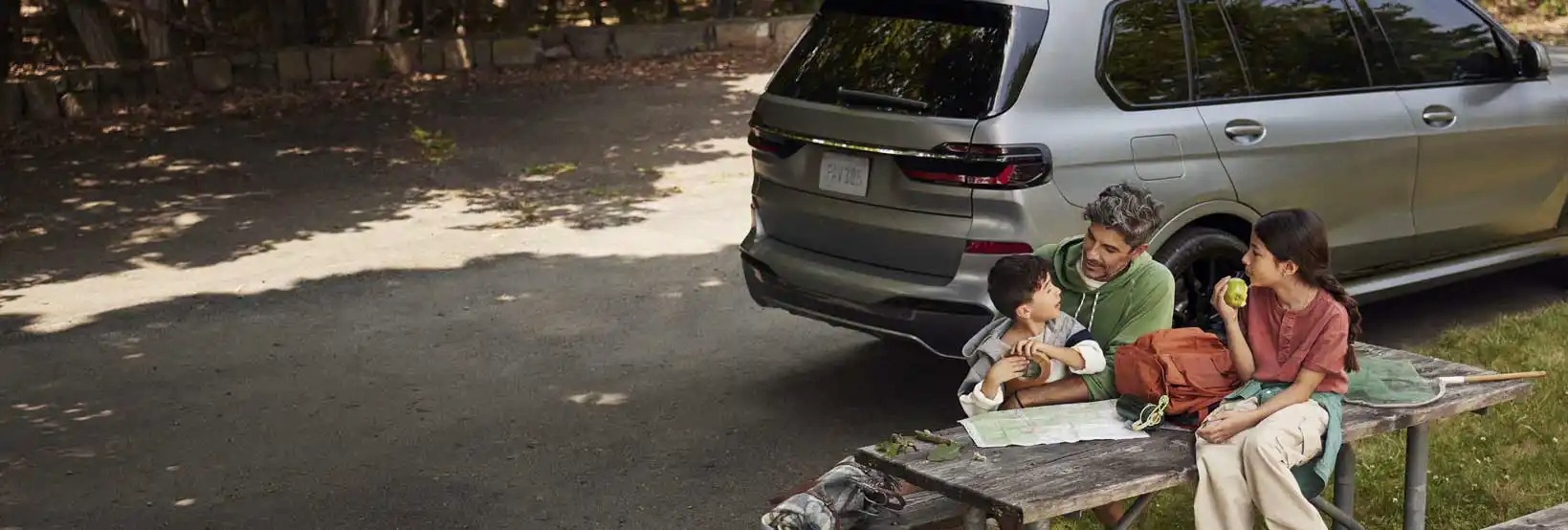RV & Trailer Insurance Policies
Whatever type of recreational vehicle (RV) you travel in, it faces unique risks and needs unique coverage. RV and trailer insurance provide personalized protection for your RV or trailer when it's on the road, at the campsite, or stored away for the season. This coverage includes protection against accidents, damage from events other than collisions, theft, and liability. With various coverage options and discounts, you can get an RV insurance quote and create a policy that fits your needs and budget.
Types of RVs we insure
Understanding your coverage options starts with knowing the type of RV you own. It's important to know the different coverage options available and how they apply to your specific type of RV.
Whether you have a small camper or a state-of-the-art RV, we can cover it. Our coverage is broken down into two categories: motorhomes and travel trailers.
Motorhomes
Motorhomes are written on a separate motorhome policy, and they’re defined as vehicles that have a living area and can be driven, including:
- Motor coaches
- Camper vans
- Pop-top campers
Travel trailers
Travel trailers can be covered under an extension on your auto policy or a separate trailer insurance policy, depending on the type of coverage you need. They’re defined as RV-type vehicles that are towed by a private passenger vehicle, like a car, SUV, pickup or van, including:
- Pop-up campers
- Toy haulers
- Truck campers
Tailor your RV insurance coverage
Understanding your coverage options is key to protecting your RV, and it's important to remember that motorhome insurance functions similarly to a car insurance policy. As you get an RV insurance quote, you'll find a variety of coverage options available, allowing you to tailor your protection to your specific needs and travel habits. Some coverages are mandatory, while others are optional, giving you the flexibility to build a policy best suited to your needs.
Liability coverage
Bodily injury liability coverage is a legal requirement in most states. This coverage pays for damages and legal fees if an accident is your fault or someone else is injured. Property damage liability coverage is also legally required in most states and helps pay for damages you cause to another person's property if an accident is your fault. Both motorhomes and travel trailers must carry liability coverage.
Collision coverage
Collision coverage helps cover repair costs when your RV is damaged in an accident with another vehicle or object. While optional in most states, collision coverage is also often required if you're financing or leasing.
Comprehensive coverage
Other than collision, or comprehensive coverage, helps pay for damage that isn’t caused by a collision. This coverage is optional in most states, but if you lease or finance, you may be required to carry it.
Medical coverages
Personal injury protection (PIP) provides coverage for medical and other related expenses you and your passengers incur when injured in an accident, regardless of fault. PIP includes coverage for lost wages, funeral expenses and essential services, like child care. PIP is typically not required coverage in all states.
Medical payments coverage (MedPay) helps to pay for medical expenses for you and your passengers when the injuries are the result of an accident, regardless of fault. MedPay is also typically not required in all states.
Uninsured/underinsured coverage
Uninsured/underinsured motorist bodily injury coverage provides protection when you or a passenger are injured in an accident with a driver who doesn't have insurance or doesn't have enough to cover the injuries. This coverage is required by some states, but even if your state doesn’t require it, it's a valuable coverage worth considering.
Uninsured/underinsured motorist property damage coverage helps cover the cost to repair your vehicle if the at-fault driver doesn’t have insurance or has insufficient coverage to pay for the full extent of the damages. This coverage is optional in most states.
Additional auto coverages
- Roadside assistance: Provides help when your motorhome breaks down, from jump starts and tire changes to fuel delivery and non-accident-related towing.
- Rental reimbursement: Covers the cost of a rental vehicle while yours is being repaired.
Travel trailer insurance
Travel trailer insurance coverage is only for physical damage to the trailer body.
- Liability and towing coverage (if available) would extend from the auto policy of the vehicle pulling the trailer.
- Any items in the trailer would be covered by personal property coverage of your homeowners policy, subject to any exclusions.
Unlock savings with RV insurance discounts
Why choose Amica?
The Amica experience means we provide reliable insurance coverage built on transparency, integrity and dependability, backed by our award-winning claims and customer service teams. With over a century of financial stability, we offer peace of mind, assuring policyholders that we're a firmly established and trustworthy insurance provider.
Exceptional value
Our approach to insurance focuses on you—you're at the forefront of everything we do. We provide customized coverage, ensuring you're well protected. With access to a variety of discounts and rewards programs, you have the potential to lower your rates without sacrificing the quality of your coverage or peace of mind.
Quality service
We're here for you, ready to assist with policy management, claims processing and more. Our dedicated support team has a long history of customer satisfaction, which means you can expect assistance from knowledgeable representatives who understand your individual needs. Whether it's paying your bill or providing guidance on coverage options, Amica aims to deliver exceptional service at every touchpoint
Reliable protection
Experience reliability with swift claims resolution. Amica policyholders have access to a convenient online portal or the mobile app, where they can easily manage their claims. Policyholders also have access to advanced tools and resources for proactive protection for a seamless insurance experience.
FAQs about RV insurance
The cost of RV insurance depends on several factors, including your state’s insurance requirements, your driving history, the type, age and condition of your vehicle, and the coverages you choose. Our experienced representatives will guide you through the quoting process to ensure you’re getting the protection you need at a fair price.
Even if you only use your RV occasionally, it's still a good idea to have insurance. While your RV is parked or stored, it's still vulnerable to risks like theft, vandalism, and damage from fire or natural disasters. RV insurance can provide financial protection in these situations. Some states also require you to have liability insurance even if your RV isn't being driven.
Water damage may be covered, depending on what causes it. RV insurance policies typically cover water damage from sudden and accidental events, such as flooding, hurricanes and burst pipes, under comprehensive coverage, but they usually don't cover water damage caused by gradual leaks, wear and tear, or lack of maintenance.
Facilities and equipment are covered, subject to exclusions, but personal property inside your RV is typically covered under a homeowners policy.
Related insurance coverages
Exploring these additional coverages can help provide protection across different aspects of your life. Consider these coverages:
Customer service that earns loyalty
Empathy isn’t just a word—it’s woven into every interaction with our policyholders. Their stories are a testament to the trust and loyalty built over decades of compassionate service and support.
1 Must be enrolled in both e-policy and e-bill in order to receive this discount.
2 Dividend policies are not available in every state, may not be available on all policy types, and are not guaranteed. To be eligible to receive a declared dividend, you must be a policyholder when, and if, dividends are declared. Should your policy cancel or terminate for any reason before the end of its full term, you would not be eligible for a declared dividend payment.
AMIC-01-022525





